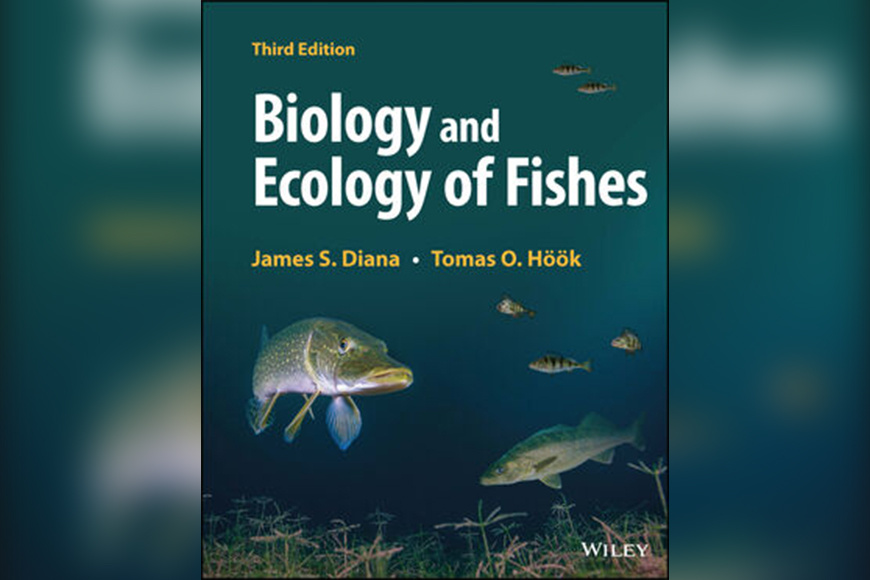
 back to all news
back to all news
Sea Grant Collaboration Produces Essential Work on Fish Ecology and Aquatic Ecosystems

ANN ARBOR—An updated textbook has been released that provides a fundamental introduction to aquatic life and ecosystems and multidisciplinary fish studies, including an understanding of the anatomical, environmental, and ethological topics of fish ecology.
This updated edition is the result of a collaboration between two Sea Grant programs – Michigan Sea Grant and Indiana-Illinois Sea Grant. Sea Grant is a national network of 34 university-based programs and National Oceanic and Atmospheric Administration (NOAA) to support coastal communities through research, extension, and education.
Biology and Ecology of Fishes, Third Edition, incorporates two distinct aspects of fish study: biology and management. Beginning with a general introduction to aquatic life and ecosystems, the textbook covers the basic topics of anatomy, physiology, and theoretical ecology of fish. It also includes more practical issues concerning fish populations, management, and habitats. Combining both tracks into a single holistic approach has never been more critical in preparing the next generation of fish biologists and fishery scientists.
“New chapters and content include additional information about emerging issues and stressors facing fish populations and communities, such as climate change, invasive species, and effects of fisheries harvest” said co-author Tomas O. Höök, professor of Fisheries Biology in Purdue University’s Department of Forestry and Natural Resources and director of Illinois-Indiana Sea Grant.
Biology and Ecology of Fishes provides an essential overview for advanced undergraduate and graduate students studying fish ecology or fisheries biology. It can also serve as a reference for researchers and professionals in fish ecology, population management, and related fields. Topics cover everything from fish diversity, growth, and reproduction to mortality, recruitment, and social behavior. The book also discusses life-history patterns and reproductive strategies, and the effects of climate change on fish and conservation. Readers will also find detailed coverage of growth and bioenergetics, feeding and predation, basic fisheries data analyses, and more.
“Similar to the first two editions of the book (with James Diana as sole author), with this third edition we have aimed to draft a text that is readable and accessible with an emphasis on concepts and issues,” added Höök.
Co-author James S. Diana is emeritus professor of Fisheries and Aquaculture in the University of Michigan School for Environment and Sustainability and former director of Michigan Sea Grant.
Michigan Sea Grant is a cooperative program of the University of Michigan, Michigan State University, and NOAA that funds research, education, and outreach projects designed to foster science-based decisions about the use and conservation of Great Lakes resources.
Illinois-Indiana Sea Grant is a bi-state cooperative program of NOAA, University of Illinois, and Purdue University bringing science together with communities for solutions that work.
Sea Grant is a network of 34 science, education, and outreach programs located in every coastal and Great Lakes state, Lake Champlain, Puerto Rico, and Guam.
More about the book, including how to order, can be found here.

